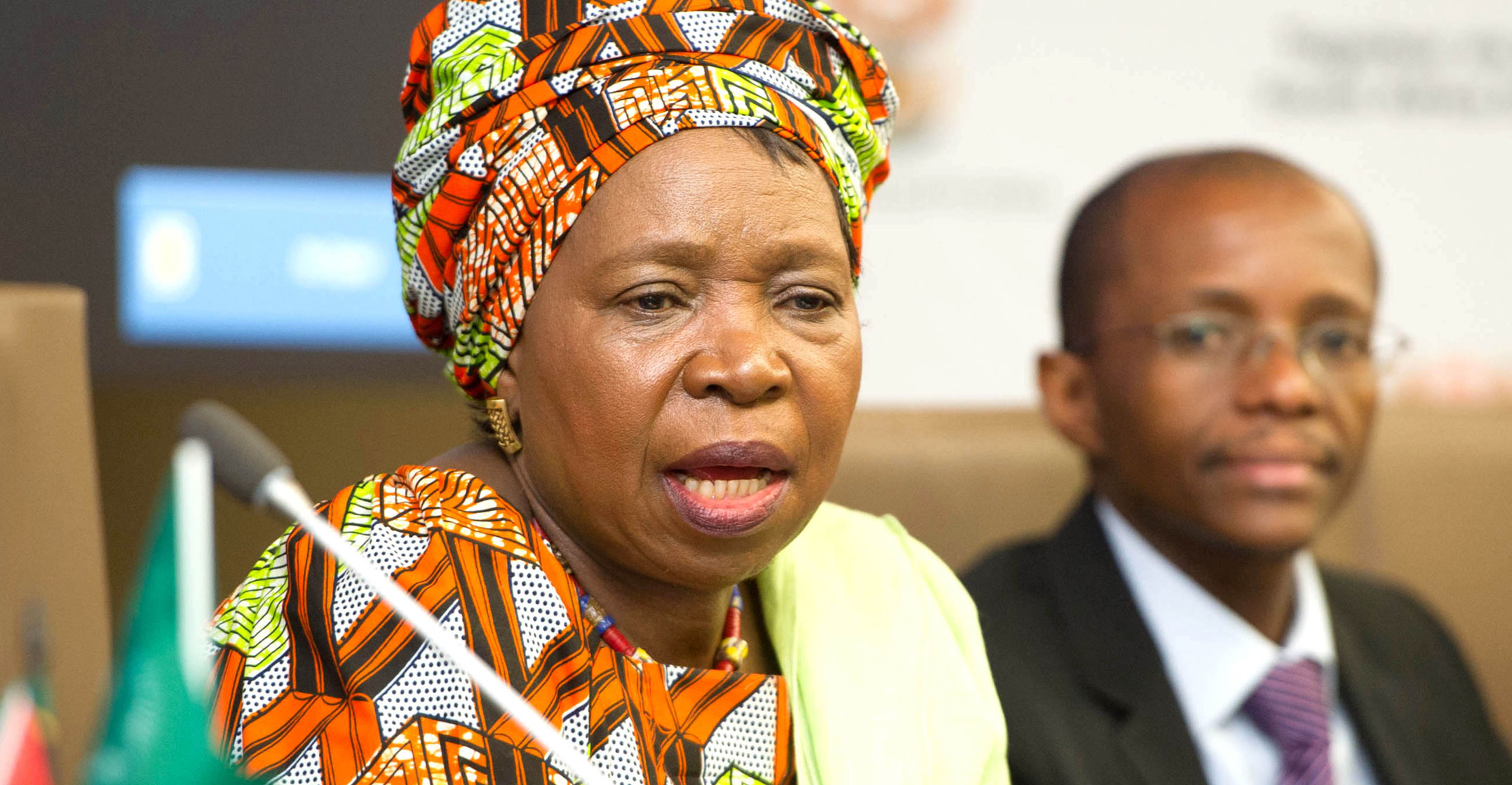
Public participation group Dear South Africa has asked cooperative governance & traditional affairs minister Nkosazana Dlamini-Zuma to provide the evidence that supported her decision to extend the lockdown earlier this month or prepare for an urgent court date.
In a letter delivered to the minister on this week, Dear South Africa attorneys Hurter Spies Inc asked the minister to provide written reasons for the extension of the lockdown announced on 14 October, backed by supporting documentation and expert evidence. She has also been asked to give a commitment that no further lockdowns will be announced.
The minister has been given until 30 October to reply or, according to the letter, Dear South Africa “will be compelled to approach the high court for appropriate relief”.
Government declared a national state of disaster on 15 March under the Disaster Management Act, and has extended this five separate times since then. Most South Africans were initially supportive of the lockdown due to the unknown threat from the Covid-19 virus, though support has dwindled according to various public participation campaigns run by Dear South Africa.
The Disaster Management Act empowers the minister to issue regulations or directions where these are needed to assist or protect the public, to provide relief, or protect property. Disasters may only be declared where existing legislation and contingency arrangements are inadequate.
90 days
In terms of section 37 of the constitution, a state of emergency may only be maintained for 90 days before its extension must be approved by parliament. No such parliamentary approval has been obtained for the latest extension.
Hurter Spies attorney Daniel Eloff says seven months into the lockdown, there is no evidence that the extended lockdown is curbing the spread of the virus. The number of cases peaked in July and has been in steady decline since then.
“The Covid infection rate peaked several months ago, and the original reason given for the lockdown was to stop the healthcare system being overloaded. We now know the healthcare system is far from overloaded, and the additional facilities provided to cope with the expected wave of infections have been closed because the wave has passed.”
 Meanwhile, judgment is expected this week on the case brought by Liberty Fighters Network (LFN), which successfully challenged government’s lockdown regulations in court in June. Government appealed the decision.
Meanwhile, judgment is expected this week on the case brought by Liberty Fighters Network (LFN), which successfully challenged government’s lockdown regulations in court in June. Government appealed the decision.
LFN founder Reyno de Beer says if the court decision goes its way, there is a possibility that the tobacco ban could return. This is because the Johannesburg high court decision in favour of LFN excluded regulations pertaining to the tobacco ban, which was then being heard separately as a result of a case brought by the Fair Trade Independent Tobacco Association (Fita). Fita chair Sinenhlanhla Mnguni says this is unlikely as agreement was reached with government to take a consultative approach with the industry should it want to reimpose a tobacco ban. The Pretoria high court earlier ruled in favour of the tobacco ban, and dismissed Fita’s appeal.
The Dear South Africa letter to government says the modelling relied upon by government has been shown to be wildly inaccurate and has been abandoned, according to Dear South Africa. The number of recorded Covid-19 deaths has been far lower than expected and currently totals just over 18 000.
The SA Centre for Epidemiological Modelling and Analysis (Sacema) abandoned its model soon after it was published, and was replaced by the National Institutes for Communicable Diseases’ “Epi Model” which has not been updated since June. The Epi Model has proven inaccurate when tracked against actual cases. It projected 40 000 deaths by the end of November.
The Actuarial Society of South Africa has also modelled the likely spread of Covid-19, and slashed its original projections of deaths to 27 000. Pandemics and Data and Analytics (Panda), which updates its model regularly, estimates just 20 000 deaths by the end of the year.
Fatality rate
The World Health Organisation recently published a paper by world famous epidemiologist John Ioannidis that estimates that the infection fatality rate of the virus is less than 0.2%.
In a separate case, AfriForum announced last week that it will fight health minister Zweli Mkhize’s proposed regulations to supervise and control notifiable diseases in future. These proposed regulations will give far-reaching powers to the minister to combat future diseases perceived as public risks, similar to that applied by government in terms of the Disaster Management Act in response to Covid-19.
There is a growing fear that government has planned to retire the draconian measures of the Disaster Management Act and use health regulations instead to achieve much the same goals (including economic lockdown).
 Several organisations are planning to challenge this in court should these new health regulations come into force.
Several organisations are planning to challenge this in court should these new health regulations come into force.
Some of these proposed powers include:
- Prohibiting travel between provinces or districts;
- Prohibiting public meetings;
- Imposition of curfews;
- Closure of educational institutions; and
- Placing people under compulsory quarantine by simply publishing a notice in the Government Gazette.
“The disastrous manner in which government handled the Covid-19 pandemic provides ample reason why the state should not have such power over citizens,” says Natasha Venter, campaigns manager at AfriForum. “It is even worse when so much power is vested in one minister. AfriForum will oppose the regulations if approved by cabinet. We cannot afford any future irrational lockdown regulations by government.”
- This article was originally published by Moneyweb and is used here with permission




